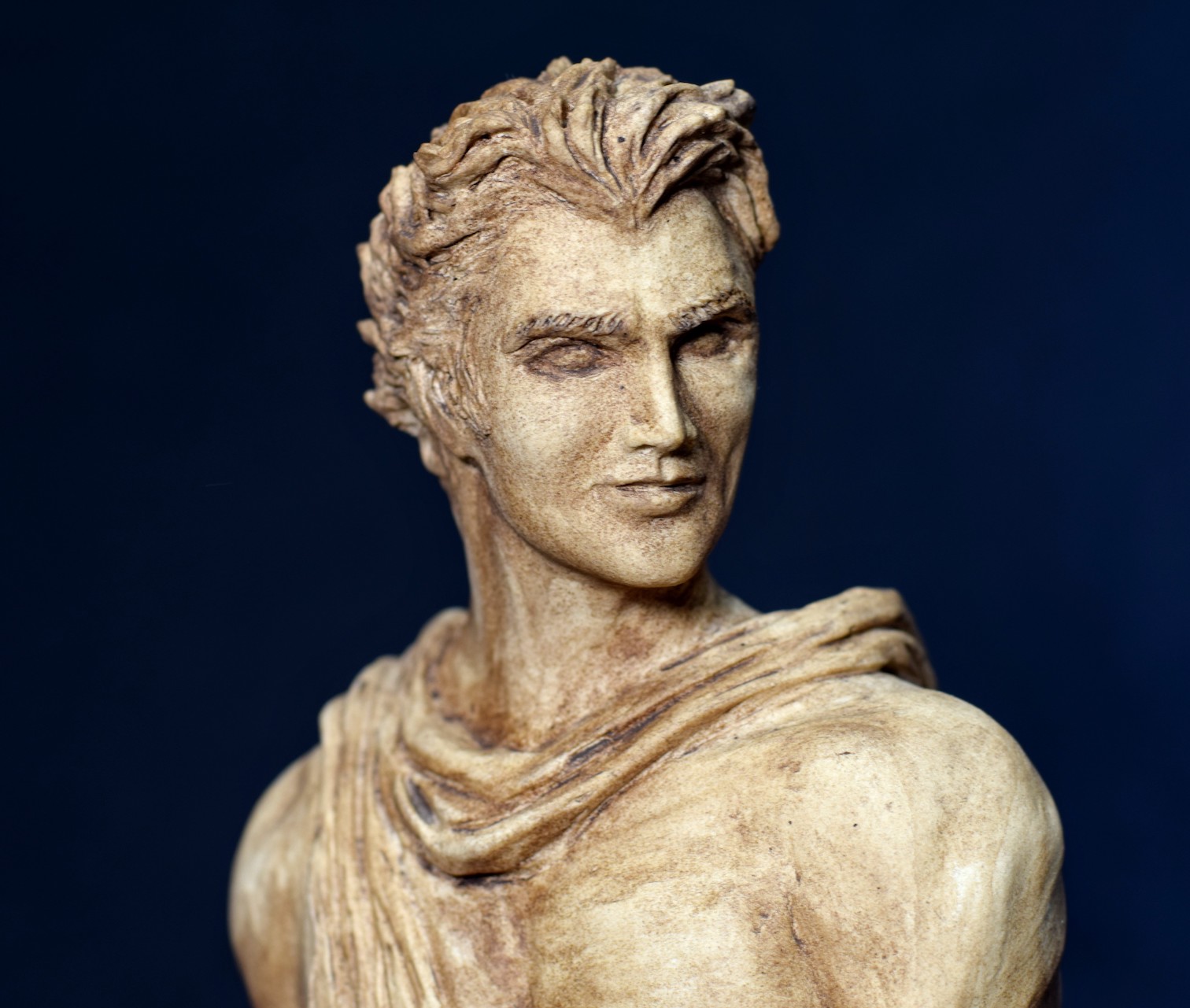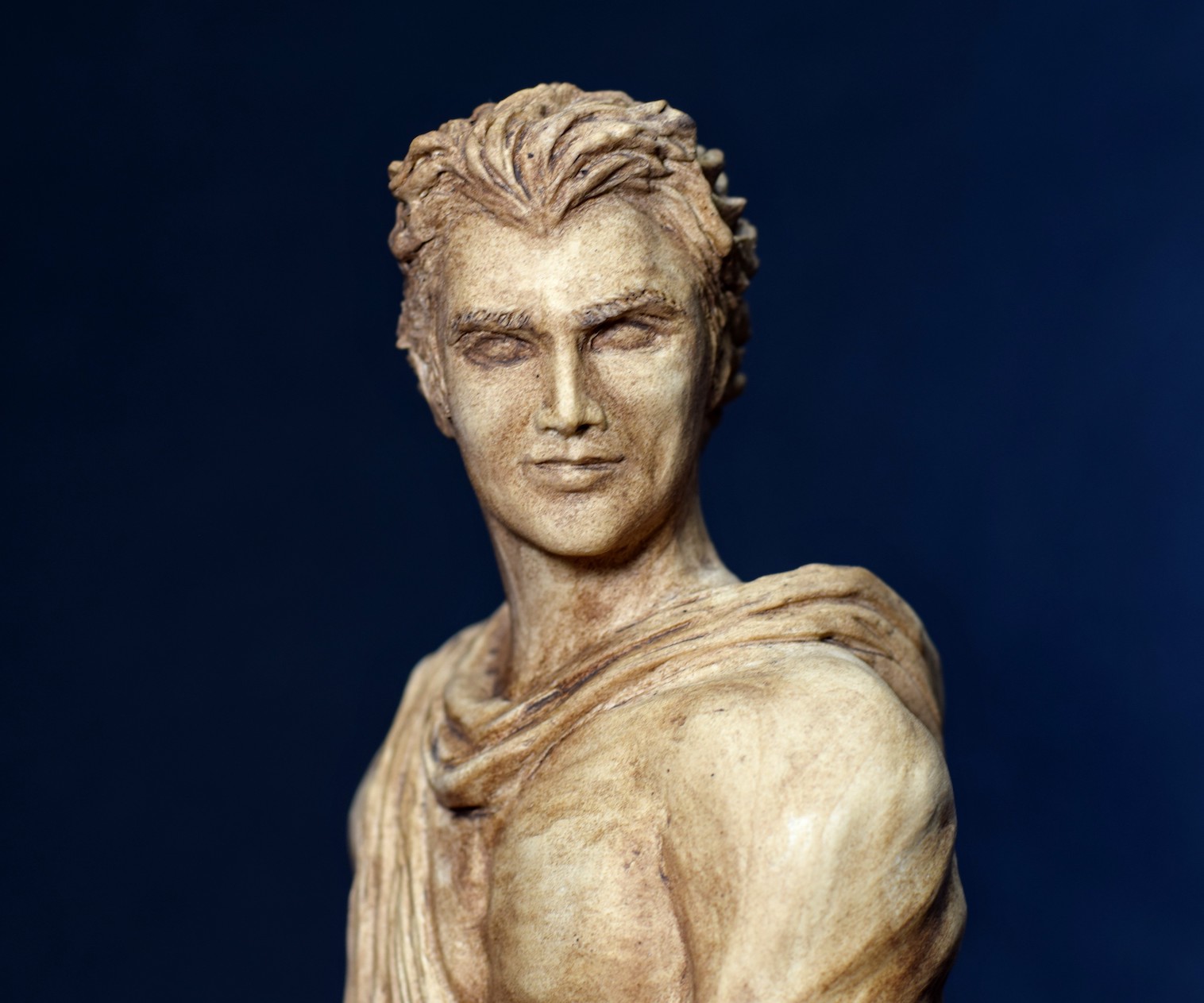Apollo: The Mythical God Of Light, Music, And Healing
Ever wondered who Apollo is and why he’s such a big deal in Greek mythology? Well, buckle up because we’re diving deep into the world of gods, legends, and timeless stories. Apollo isn’t just another deity; he’s a multifaceted figure who embodies light, music, prophecy, and healing. If you’re curious about how this god fits into the grand tapestry of mythology, you’re in the right place. Let’s unravel the mysteries together!
Apollo is one of the most iconic figures in Greek mythology, and for good reason. Known as the god of light, music, and prophecy, Apollo has captivated the imagination of people for centuries. His influence extends far beyond ancient Greece, shaping art, literature, and even modern culture. Whether you’re a mythology enthusiast or just curious about the gods of old, Apollo’s story is one worth exploring.
In this article, we’ll break down everything you need to know about Apollo—his origins, powers, and significance in both ancient and modern times. So grab a cup of coffee, and let’s dive into the world of the sun god!
Read also:Alexis Zard The Rising Star In The World Of Entertainment
Table of Contents
- Apollo’s Biography: Who is He?
- Origins of Apollo: Where It All Began
- Apollo’s Powers: What Makes Him Special
- Symbols of Apollo: Unveiling His Iconography
- Famous Myths About Apollo: Tales of Glory and Drama
- Apollo and Music: The God of Melody
- Apollo and Prophecy: The Oracle Connection
- Apollo and Healing: The God of Medicine
- Apollo in Art: Depictions Through the Ages
- Apollo’s Legacy: Impact on Modern Culture
Apollo’s Biography: Who is He?
Let’s start with the basics. Apollo is one of the twelve Olympian gods in Greek mythology, and his domain covers a wide range of areas—light, music, prophecy, healing, and more. Born to Zeus and Leto, Apollo is the twin brother of Artemis, the goddess of the hunt. His story is filled with drama, triumphs, and challenges that make him one of the most fascinating figures in mythology.
Here’s a quick breakdown of Apollo’s key details:
Apollo’s Key Facts
| Attribute | Details |
|---|---|
| Name | Apollo |
| Parents | Zeus and Leto |
| Siblings | Artemis (twin sister) |
| Domains | Light, music, prophecy, healing, and more |
| Symbol | Lyre, bow and arrow, laurel wreath |
So, why is Apollo so important? Well, he’s not just a god; he’s a symbol of balance, harmony, and creativity. His influence extends far beyond the realm of mythology, making him a timeless figure in human culture.
Origins of Apollo: Where It All Began
The story of Apollo’s birth is as dramatic as it gets. Leto, his mother, was pursued relentlessly by Hera, Zeus’s jealous wife. Despite the challenges, Leto found refuge on the island of Delos, where she gave birth to Apollo and his twin sister, Artemis. This origin story sets the tone for Apollo’s life—a journey filled with resilience and triumph.
Key Events in Apollo’s Early Life
- Birth on Delos: Apollo’s birth marked the beginning of his journey as a god.
- First Triumph: As a newborn, Apollo slayed the Python, a monstrous serpent that terrorized Delphi.
- Establishment of Delphi: After defeating the Python, Apollo claimed Delphi as his sacred site, where the Oracle would later reside.
These early events shaped Apollo’s character and cemented his place among the gods. His courage and determination are qualities that continue to inspire people to this day.
Apollo’s Powers: What Makes Him Special
Apollo isn’t just a pretty face; he’s packed with powers that make him one of the most formidable gods in mythology. From his mastery of music to his ability to heal, Apollo’s powers are as diverse as they are impressive.
Read also:Andrew Marshall The Untold Story Of A Visionary Leader
Top Powers of Apollo
- Light and Sun: Apollo is often associated with the sun, bringing light and warmth to the world.
- Music and Poetry: He’s the god of music and poetry, often depicted playing the lyre.
- Prophecy: Apollo is the god of prophecy, with the Oracle of Delphi serving as his mouthpiece.
- Healing and Medicine: He’s also associated with healing and is considered the god of medicine.
These powers make Apollo a multifaceted deity whose influence spans various aspects of life. Whether it’s through music, prophecy, or healing, Apollo’s impact is undeniable.
Symbols of Apollo: Unveiling His Iconography
Every god has their symbols, and Apollo is no exception. His symbols are deeply tied to his domains and reflect his role as a god of light, music, and prophecy.
Key Symbols of Apollo
- Lyre: The lyre is Apollo’s most famous symbol, representing his mastery of music.
- Bow and Arrow: Apollo is often depicted with a bow and arrow, symbolizing his role as a warrior and protector.
- Laurel Wreath: The laurel wreath is a symbol of victory and is closely associated with Apollo.
These symbols are not only iconic but also meaningful, representing the various facets of Apollo’s personality and influence.
Famous Myths About Apollo: Tales of Glory and Drama
Apollo’s story is filled with myths that showcase his character and powers. From epic battles to romantic entanglements, these myths paint a vivid picture of the god of light.
Top Myths About Apollo
- Apollo and Daphne: One of the most famous myths involves Apollo’s unrequited love for Daphne, who was transformed into a laurel tree to escape him.
- The Python Slayer: As a newborn, Apollo slayed the Python, a monstrous serpent that terrorized Delphi.
- Apollo and Marsyas: In this myth, Apollo challenges Marsyas to a musical contest, resulting in a tragic outcome for the challenger.
These myths not only entertain but also provide insight into Apollo’s personality and the challenges he faced.
Apollo and Music: The God of Melody
Music is one of Apollo’s most celebrated domains, and his association with the lyre is legendary. As the god of music, Apollo is often depicted playing the lyre, creating melodies that inspire and uplift.
Music in Apollo’s Life
- The Lyre: Apollo’s lyre is a symbol of his musical prowess and is said to have been gifted to him by Hermes.
- Contests and Challenges: Apollo often engaged in musical contests, showcasing his skills and defending his title as the god of music.
Through music, Apollo connects with mortals and gods alike, spreading joy and harmony throughout the world.
Apollo and Prophecy: The Oracle Connection
As the god of prophecy, Apollo is closely tied to the Oracle of Delphi, one of the most famous oracles in ancient Greece. The Oracle served as Apollo’s mouthpiece, delivering prophecies and guidance to those who sought them.
The Oracle of Delphi
- Delphi’s Significance: Delphi was considered the center of the world in ancient Greece, and Apollo’s presence there made it a sacred site.
- Prophecies and Guidance: The Oracle delivered prophecies that influenced the decisions of kings, leaders, and ordinary people alike.
The connection between Apollo and the Oracle highlights his role as a guide and advisor, helping mortals navigate the complexities of life.
Apollo and Healing: The God of Medicine
Apollo’s association with healing and medicine is another important aspect of his character. As the god of healing, Apollo is often invoked for protection against illness and disease.
Healing in Apollo’s Realm
- Asclepius: Apollo is the father of Asclepius, the god of medicine, further cementing his connection to healing.
- Temples and Sanctuaries: Many temples dedicated to Apollo served as healing centers, where people sought cures for their ailments.
Through his role as a healer, Apollo brings hope and comfort to those in need, making him a compassionate and caring deity.
Apollo in Art: Depictions Through the Ages
Apollo has been a popular subject in art for centuries, with countless depictions showcasing his beauty and grace. From ancient sculptures to modern paintings, Apollo’s image continues to inspire artists and audiences alike.
Famous Artworks Featuring Apollo
- The Apollo Belvedere: This iconic sculpture is one of the most famous depictions of Apollo, showcasing his idealized form.
- Raphael’s Apollo and Marsyas: This painting captures the drama of Apollo’s musical contest with Marsyas.
These artworks not only celebrate Apollo’s beauty but also highlight his significance in the world of art and culture.
Apollo’s Legacy: Impact on Modern Culture
Apollo’s influence extends far beyond ancient Greece, shaping modern culture in countless ways. From literature to film, Apollo continues to inspire and captivate audiences worldwide.
Apollo in Modern Times
- Literature: Apollo is a recurring character in modern literature, often appearing in novels and poems.
- Film and TV: His story has been adapted into various films and TV shows, bringing his legend to new generations.
As we continue to explore and reinterpret Apollo’s story, his legacy lives on, reminding us of the timeless power of mythology.
Conclusion
In conclusion, Apollo is more than just a god; he’s a symbol of light, music, prophecy, and healing. His story is one of triumph and resilience, and his influence extends far beyond the realm of mythology. Whether you’re fascinated by his powers, inspired by his music, or moved by his compassion, Apollo’s legacy continues to resonate with people around the world.
So, what’s next? Why not share this article with your friends or leave a comment below? Let’s keep the conversation going and celebrate the enduring legacy of Apollo!


